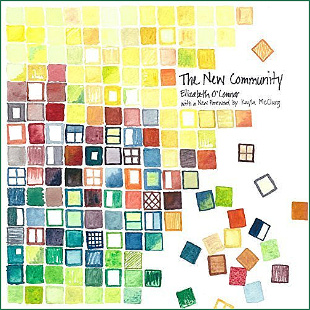"In his most extraordinary book, Pedagogy of the Oppressed, Paulo Friere calls us to this kind of reaching out when he writes: 'We cannot say that in the process of revolution someone liberates someone else, nor yet that someone liberates himself, but rather that men in communion liberate each other.'
"His words [in Education for Critical Consciousness] have the poetry of the old prophets. They come on the wind and fall into deep places:
" 'We flourish in communion with each other . . . . There are no donors or receivers . . . . There are no relationships that are not reciprocal. . . . But freedom isn’t something that is given. It is something very arduous, because nobody gives freedom to anyone else, no one frees another, nobody can even free himself all alone; men free themselves only in concert, in communion, collaborating on something wrong that they want to correct. There is an interesting theological parallel to this: no one saves himself alone, because only in communion can we save ourselves -- or not save ourselves.
" 'There is no 'I am,' nor 'I know,' nor 'I liberate you,' nor 'I save you' -- but rather a 'we are,' a 'we know,' a 'we liberate one another,' and a 'we save one another.'
" 'As long as I fight, I am moved by hope; and if I fight with hope, then I can wait.
" 'Any delay caused by dialogue -- in reality a fictitious delay -- means time saved in firmness, in self-confidence, and confidence in others, which anti-dialogue cannot offer."
"When Bruno Bettelheim [in A Home for the Heart] commented on the hunger in the world for community, he wrote:
" 'Today there is a considerable desire for greater communality in living. But the reason most so-called communities usually cannot keep their members and exist on the fringes of society, often as its parasites, lies in a crucial misconception about communal life. Most of these communities are formed 'to live the communal life,' and therefore concentrate on it. I am convinced communal life can flourish only if it exists for an aim outside itself. Community is viable if it is the outgrowth of a deep involvement in a purpose which is other than, or above that of being a community.'
"Long before these contemporary prophets, Isaiah was telling us that we grow and thrive only when we reach out to take others into 'the family.' He cries:
"'Enlarge the limits of your home
spread wide the curtains of your tent
Let out its ropes to the full
and drive the pegs home (Isa. 54:2 NEB).'
"This is a scripture to wrap around a wrist as the Vietnamese come to live in our cities and towns and homes -- a scripture to help create a friendly space for every immigrant groaning for hope, and work, and community. Unless words like these find root in us, old myths will come alive. We will think that there is not enough to go around, that we need to protect ourselves, to remember that 'they are outsiders who want to know us for what they can take from us,' to be suspicious of their motives. We will begin the process of segregation from those with whom we have an opportunity to build international communities, and with whom we can be a sign of the future. 'Enlarge the limits of your home' is more than a suggestion. It is the condition of a promise: 'Then shall your light break forth like the dawn and soon you will grow healthy like a wound newly healed' (ISA.58:8 NEB), or 'Then, if you call, the Lord will answer; if you cry to him, he will say, 'Here I am'' (Isa. 58:9 NEB)."
